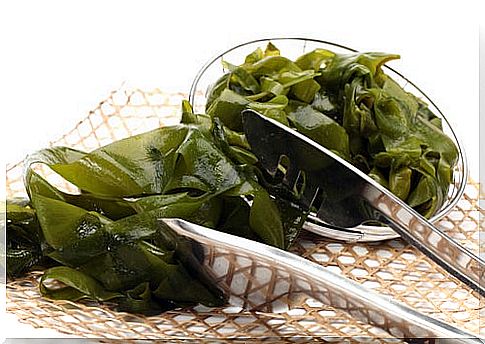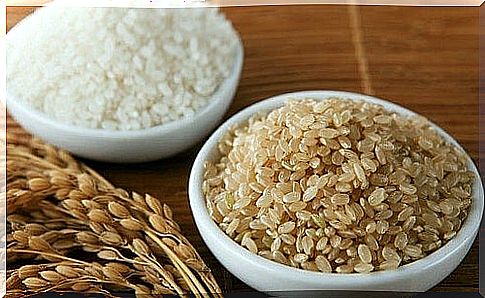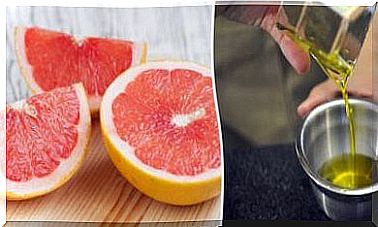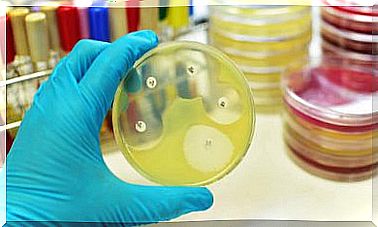10 Delicious Foods Rich In Plant Protein: Discover Them!
When it comes to “protein” we almost instantly think of meat and dairy. Now, did you know that there are actually many foods rich in plant protein? Thanks to these nutrients our cells can regenerate, we obtain the energy our body needs and important metabolic processes can take place.
Therefore, in order to lose weight optimally and healthily, it is vital that you increase your consumption of vegetable protein : in this way you will be able to prevent numerous diseases, you will promote the proper functioning of your organs and, in addition, you will avoid the classic flaccidity of the skin by hardening the muscle .
Would you like to know foods rich in vegetable protein that you should consume more? Here are 10 of them. Take note!
Foods rich in vegetable protein
1. Algae
Did you know that seaweed has 10 times more calcium than milk ?
This is demonstrated by a study published by the Chilean Nutrition Magazine; where they point out all the properties that the consumption of algae has in the body and, in addition, it states that “a portion of Ulva lactuca provides approximately 257 mg of calcium, similar to that of cheese.”
Therefore, in addition to being one of the foods rich in vegetable protein, they can provide you with all these benefits:
- Seaweed contains vitamins A, D, E, B1, B2, C, and minerals such as phosphorus, potassium, iron, iodine, fiber, sodium …
- The most appropriate thing is to always consume small amounts but on a regular basis. How about taking them 3 times a week in our salads?
- Regular consumption of seaweed will help us regulate blood sugar levels, cleanse the digestive system, and purify and alkalize the blood. However, remember to consume them in small quantities.
Protein is essential for our body to carry out its basic metabolic functions, but did you know that it is possible to lose weight by eating more protein ?

2. Almonds
Experts tell us that a day we can consume between 10 and 25 grams of almonds (20 units). This is because they are rich in calcium, iron (similar to the proportion that spinach offers us) and vegetable proteins.
Its multiple benefits, which we will detail below, are scientifically proven in this study published by the Cuban Journal of Cardiology and Cardiovascular Surgery.
It is a staple in the diet of vegetarians, for example, and is one of the sources of plant protein that contains arginine (an essential amino acid for children).
On the other hand, they are also rich in the salts that form salicylic acid in aspirin. Thus, they can help relieve some bone pain.
In addition, almond milk is used as plant milk and is important for pregnant women, infants, to combat diseases of the nervous system, malnutrition, anemia, etc.
3. Beans
Who can resist a good plate of beans? They hardly contain fat and they provide us with everything from vegetable proteins to fiber and slow-digesting carbohydrates. In addition to this, they can help us reduce bad LDL cholesterol, according to a study approved by the Higher Council for Scientific Research.
On the other hand, beans improve intestinal transit and are suitable for regulating glucose in the blood.
4. Rice
In reality, all types of rice are foods rich in plant protein. They have carbohydrates, vitamins, minerals and various organic components necessary for the proper functioning and metabolic activity of our body.

5. Oats
Oatmeal is also considered a superfood. Thanks to its minerals, vitamins and essential amino acids, it is one of the foods with the highest biological value.
First of all, oatmeal improves digestion. This is because it reduces bile acids, improves intestinal transit and offers us a good feeling of satiety. In addition, it helps us control blood sugar levels.
6. Lentils
Lentils are very rich in nutrients and are one of the most remarkable sources of vegetable protein. Some other benefits are their fiber content and their low lipid content. Therefore, they are very suitable for losing weight in a healthy way.
In addition, this legume is rich in vitamins A, B1, B2, B3, B6, C and E, and minerals such as potassium, phosphorus, calcium, iron, magnesium and sodium. How to resist?
7. Walnuts
Walnuts are a treasure trove of health benefits. You can take between 15 and 30 grams a day and, thanks to them, you will obtain all these properties:
- Walnuts improve the connection between neurons thanks to their content of polyphenols and other antioxidants.
- They are part of the Mediterranean diet preventing cardiovascular diseases thanks to their content of healthy fatty acids.
- Regular consumption of walnuts and almonds reduces the feeling of hunger, reduces the concentration of substances related to inflammation and puts us in a good mood. So don’t forget to have between 5 and 7 walnuts for your breakfast!
8. Quinoa
Quinoa has a very low glycemic index, which allows us to include it in our weight loss diets to benefit from its vegetable protein, its fiber and its nine essential amino acids. In addition… it is very suitable to offer us energy! This would be detailed in a study published by the Altoandinas Investigations Journal.
Thanks to its unsaturated lipid content, quinoa helps control blood cholesterol levels and thus prevent cardiovascular problems. Finally, it also does not contain gluten.
9. Pistachios
Do you like pistachios? So you can consume between 15 and 30 grams every day. You will get a lot of energy, vegetable protein and you will reduce the risk of suffering from various cardiovascular diseases.
For its part, pistachio is rich in monounsaturated and polyunsaturated fats, which helps us reduce the levels of bad cholesterol or LDL in the blood. Don’t hesitate to enjoy them!
10. Buckwheat
Do you already know the benefits of buckwheat or buckwheat? You can find it in natural stores or in the diet section of your supermarkets. We explain why you should consume it more often:
- Buckwheat strengthens blood vessels and improves blood circulation, which is useful for those who suffer from hemorrhoids and varicose veins according to an article published by The Technological Scientific Journal “RECIENTEC”.
- In addition, it reduces LDL cholesterol and prevents arteriosclerosis.
- It does not contain gluten.
- It is suitable for weight loss diets and offers us a lot of energy and nutrients.
What did you think of the information? You sure think it is very useful. Now that you know the properties of these 10 foods, do not hesitate to incorporate them into your diet! In the long run, your body will thank you.









